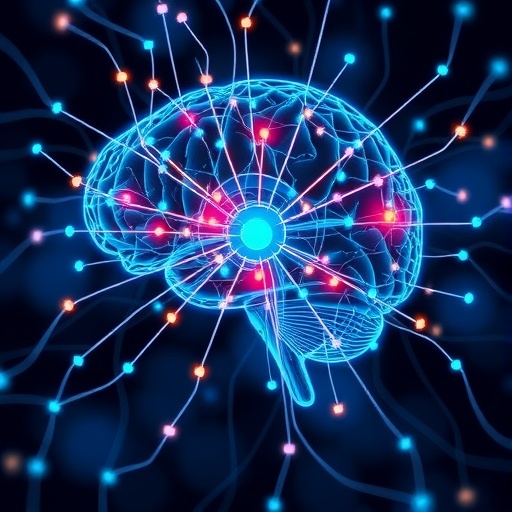In the shadow of a global mental health crisis exacerbated by the COVID-19 pandemic, researchers have unveiled a pioneering advancement in psychiatric diagnostics—MentalAId, an enhanced deep learning model engineered to revolutionize psychosis assessment. As mental health services worldwide grapple with increased demand and strained resources, this innovative tool promises scalability, cost-effectiveness, and accessibility without sacrificing diagnostic accuracy.
Traditional psychiatric evaluation methods, heavily reliant on clinical interviews and symptom-based assessments, have long been hindered by their inherently one-on-one nature. Such approaches limit timely large-scale screening and delay early intervention, especially in resource-constrained healthcare systems. Recognizing these obstacles, scientists sought to harness artificial intelligence and routinely available clinical data to devise a novel solution capable of transcending these barriers.
At the core of MentalAId lies an improved DenseNet architecture—a densely connected convolutional neural network optimized for extracting nuanced patterns from complex datasets. Unlike previous AI models requiring expensive or specialized medical tests, MentalAId operates solely on 49 standard laboratory blood tests alongside two key demographic variables, sex and age. This data-driven method enables swift, non-invasive psychosis recognition using information already collected during routine healthcare visits.
The model was trained and validated on a massive dataset comprising nearly 29,000 individuals drawn from four distinct cohorts: psychotic inpatients, non-psychotic inpatients suffering from various physical ailments, healthy controls, and drug-naïve patients experiencing their first episode of psychosis (FEP). This comprehensive sampling ensures robustness across diverse populations and clinical settings, enhancing the model’s generalizability and clinical utility.
Performance metrics demonstrate MentalAId’s exceptional ability to distinguish psychotic disorders from both healthy states and other physical diseases, boasting an overall accuracy of 93.3%. The area under the receiver operating characteristic curve (AUC), a hallmark measure of diagnostic precision, reaches an impressive 0.983, underscoring the model’s potential as a clinical decision-support tool.
One of MentalAId’s standout features is its resilience to real-world data challenges, including extreme laboratory values and missing data points, both common in routine clinical workflows. Remarkably, the model maintains accuracies above 92% in such imperfect conditions, illustrating its robustness and reliability for practical deployment outside controlled research environments.
Of significant translational value is the model’s performance in early disease recognition. Drug-naïve first-episode psychosis patients, often elusive in conventional screenings due to subtle or atypical symptom presentations, were identified with 91.9% accuracy. Early and accurate detection in this critical window holds promise for timely interventions that may alter disease trajectories and improve long-term outcomes.
Beyond raw predictive power, MentalAId offers interpretability, a crucial feature for clinical acceptance. The model’s analyses highlighted indirect and direct bilirubin levels and basophil ratios as potential metabolic markers relevant to psychosis, suggesting intriguing biological pathways that warrant further exploration. These findings not only enhance trust in the AI’s decision-making process but also open avenues for novel biomarker discovery.
In the context of post-pandemic healthcare, where psychiatric resources remain stretched thin, MentalAId’s reliance on routine blood tests alone facilitates seamless integration into existing healthcare infrastructure. This simplifies adoption, minimizing disruption while maximizing scalability across varied healthcare settings, from urban hospitals to under-resourced clinics.
Moreover, the system empowers long-term, population-wide psychosis monitoring, creating opportunities for continuous disease progression tracking and prognosis assessment. Such capabilities are invaluable for managing chronic mental illnesses prone to relapse and for tailoring personalized treatment strategies guided by dynamic data.
Experts emphasize that MentalAId not only represents a technological leap but also embodies a paradigm shift in mental health diagnostics—shifting from symptom-centric models to data-driven, scalable frameworks. This evolution paves the way for democratizing psychiatric care and mitigating disparities in service accessibility worldwide.
Future research directions include expanding the model’s application to other mental health disorders, refining interpretability mechanisms, and conducting real-world clinical trials to evaluate longitudinal impacts on patient outcomes. As mental health challenges persist globally, innovations like MentalAId signify a beacon of hope, illustrating the transformative potential of artificial intelligence in psychiatry.
In sum, MentalAId encapsulates the convergence of advanced machine learning and routine clinical data to forge a groundbreaking tool for psychosis assessment. Its ability to deliver high accuracy, handle imperfect data, and detect early-stage illness marks it as a milestone in mental healthcare innovation, poised to reshape how psychotic disorders are recognized and managed on a global scale.
Subject of Research: Development of an improved DenseNet-based machine learning model for scalable and accurate psychosis assessment using routine laboratory data.
Article Title: MentalAId: an improved DenseNet model to assist scalable psychosis assessment
Article References:
Li, M., Liu, F., Du, F. et al. MentalAId: an improved DenseNet model to assist scalable psychosis assessment. BMC Psychiatry 25, 740 (2025). https://doi.org/10.1186/s12888-025-07194-4
Image Credits: AI Generated




